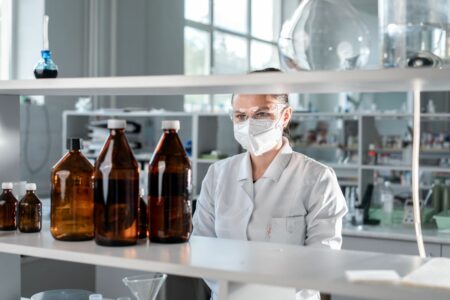News
How is 3D Printing Used in Chemistry?
In the realm of chemistry, 3D printing has ushered in an era of unmatched precision and flexibility. This introduction to the world of 3D printing will delve into the technology’s benefits, explore its diverse uses across industries, and discuss the limitations that still exist in it’s use. The Benefits of 3D Printing in Chemistry 3D…
What’s the Difference Between Analytical Chemistry and Chemical Analysis
The words analytical chemistry and chemical analysis can sometimes be confused by those outside of the scientific community, but it’s important not to mix these two up as they are entirely different concepts. At its core, the difference between these two is that one is a process whereas the other is a branch of chemistry.…
The Power of Synthetic Molecules: Creating Lissodendoric Acid A
Organic chemists at UCLA have recently created the first synthetic version of a molecule found in a sea sponge that may have therapeutic benefits for Parkinson’s disease and similar disorders. Let’s discuss it.
Biotechnology Offers a New Way of Plastic Waste Management
One way researchers are offering a new option for plastic waste is the development of a biocatalyst that can degrade certain types of plastics.
What Purpose Does the Peptide Bond Serve in Protein Synthesis?
Proteins play a critical role in many processes within cells and organisms. These important biomolecules are made up of building blocks called amino acids, which are linked together by a chemical bond called the peptide bond. Understanding the role of peptide bonds in protein synthesis is crucial to understanding the fundamental processes of life. What…
Which Foods Have All 9 Essential Amino Acids
Amino acids are the building blocks of proteins and are crucial for maintaining optimal health. Out of the 20 different types of amino acids, there are 9 that cannot be produced in the body and these are referred to as “essential amino acids.” These essential amino acids play important roles in many bodily processes necessary…
Using Chemical Coding to Track Plastic Pollution
Plastic pollution is the accumulation of synthetic plastics — think plastic bottles, plastic pack rings, plastic packaging, bottle caps, straws, and hundreds of other plastic items. It’s a widespread problem, and we need to do something about it. But why is it a problem? Plastic pollution causes harm to wildlife — animals ingest and choke on plastic.…
Lithium-ion Batteries: Could New Research Mean Fewer Fires?
Lithium-ion (Li-ion) batteries are used to power all kinds of devices from smartwatches, to power banks, and even electric vehicles. But there’s one big problem with Li-ion batteries — they are prone to catching fire when they get too hot. You likely know someone who has had a power bank, a vape, or another Li-ion-powered…
What Is Wood-Based Degradable Plastic?
Home furnishings could be replaced with a new wood-based degradable plastic that can be broken down without any harmful effects on the environment. Researchers in Sweden say this new material would replace traditional home furnishings such as cabinets, countertops, doors, and even wallboards. Unlike current home products — this new degradable wood-based plastic can be created…
How Does Plastic Biodegrade?
Over time, if left unattended, plastic bottles, carrier bags, and other plastic packaging will naturally break down. There are numerous ways this can happen — it could be a result of heat and sunlight, friction, oxidation, or even animals ingesting plastic. But either way, the plastic breakdown process begins here, but goes on forever. It’s…










